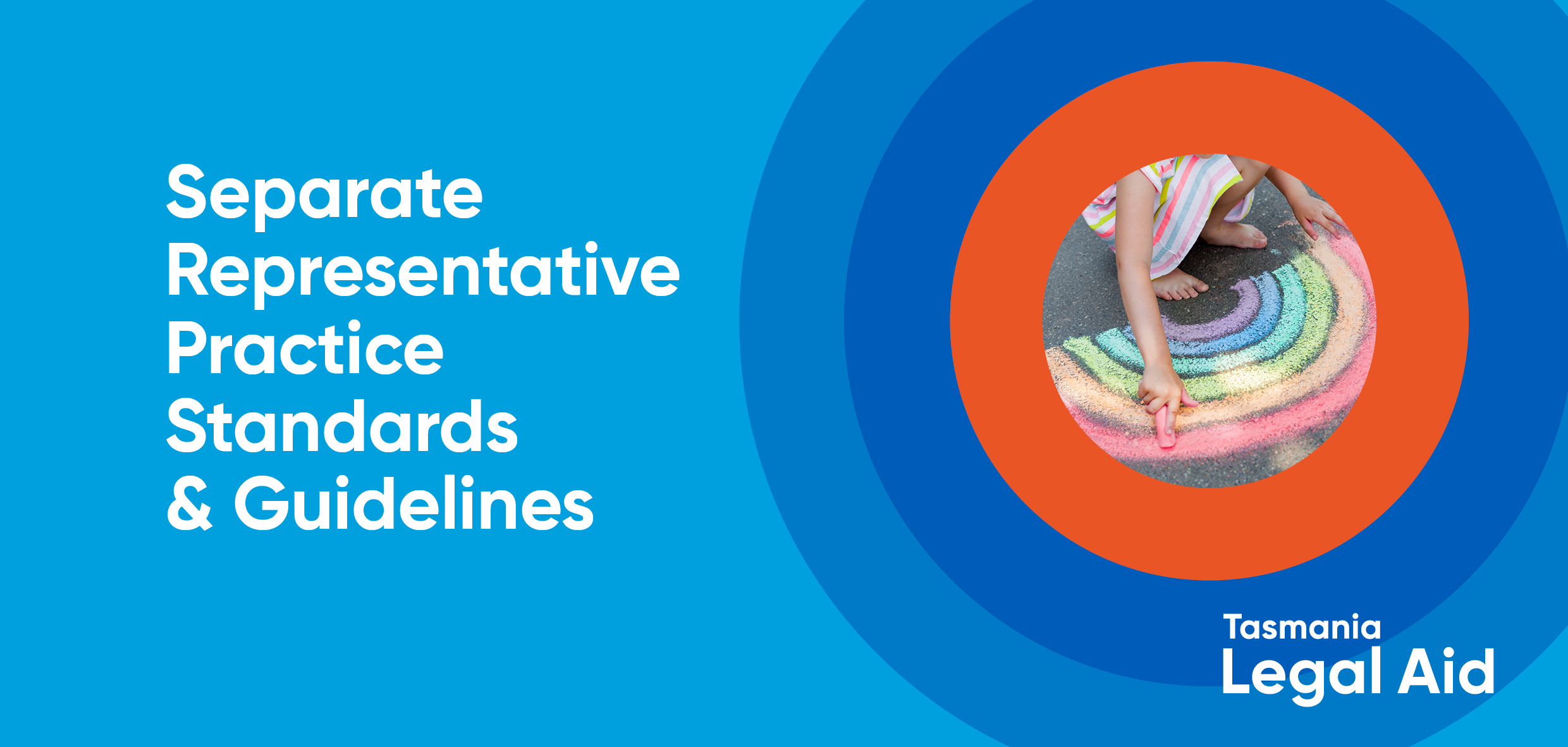Tasmania Legal Aid Director Kristen Wylie, said that Tasmania will again lead the country with the introduction of Practice Standards and Guidelines (PSG) to assist protecting vulnerable children involved in the child safety systems.
“Our vision is for a Tasmania where everyone is safe, respected and has their voice heard. It is important that children involved in the child safety system have their voices heard and that their interests are protected by the separate representatives appointed by the Court. The Practice Standards and Guidelines embodies these principles and enshrines them in practice” Ms Wylie said.
“Children are the most vulnerable and voiceless members of our community. They are the focus of TLA’s 2020-2023 Strategic Plan and of the Practice Standards and Guidelines.
The introduction of the Separate Representative Practice Standards and Guidelines follows the nation leading introduction of the Independent Children’s Lawyers Practice Standards and Guidelines for ICLs in family law matters in June 2022.
“We are now proud to launch our Separate Representative Practice Standards and Guidelines for Separate Representatives (SRs) in child safety matters.
“SRs are appointed in child safety matters to work with the children and to assist the Court in determining what is in the best interests of the child. Most of the children in the child safety system have been impacted by trauma and we work with these children at a very difficult time in their lives. Despite the importance and complexity of the SR’s role , there were no Tasmanian practice standards for the work that SRs do.”
“The PSG gives SRs the tools to give children a voice and a say about their safety. The SR has a crucial role in providing the checks and balances, to ensure that the court has the best information about the safety and needs of the child and that the Court hears the child’s voice and wishes .
Ms Wylie said the PSG is an accessible and user-friendly resource to complement the professional experience, ongoing professional training and current practices of the dedicated legal practitioners who undertake this important role.
“It is a practical guide, covering each aspect and stage of the role. It focuses on best practice working with children in the child safety system and the SR as an active and engaged advocate with and for the child.”
The PSGs were developed in close consultation with a range of stakeholders including TLA, the DPP, the Department of Communities, The Commissioner for Children and Young People, the Law Society and the Family Law Practitioners of Tasmania, said Ms Wylie.
“Existing SR’s, experts and representatives from key stakeholder groups were consulted from the start of the project and invited to provide feedback on the PSG.”
“Contributing stakeholders include Magistrates, the Child Advocate, psychologists, disability advocates, kinship and foster carer groups, family violence workers and other community bodies.”
“The SR PSG is all about having child-centred practice and giving children a voice. It recognises that SRs work with children who have been impacted by trauma and helps to deliver a trauma informed approach.”
The Separate Representative Practice Standards & Guidelines.

